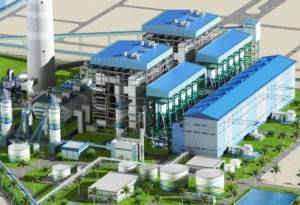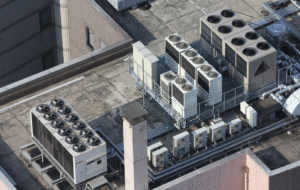Real story. Real transformation. Zero vendor chaos.
It started with an empty land on the outskirts of Ahmedabad-all it took was a barren land and a dream. A medium-sized pharma company had acquired the land but was not sure what to do as it aspired to expand to regulated markets. Architects, HVAC vendors, validation consultants, and equipment suppliers are all isolated and have only part of the solution. The challenge? It’s weaving all together into a fitting, ready-to-open facility could not be done by any one party.
That is when they resorted to a turnkey partner, someone who could do more than put up a wall or deliver equipment, but could provide a GMP-compliant turn-key facility that was fully commissionable and ready to pass inspections and enter commercial production. It is the strength of turnkey pharmaceutical projects.
Time-to-market and regulatory compliance are not options in the current competitive climate in the pharma industry. An integrated, end-to-end approach gives turnkey solutions a feel of urgency, and any bolt, beam and biosafety spec is covered.
What ‘Turnkey’ Really Means in Pharma Facility Execution (And Why It Works)
In the pharmaceutical industry, Turnkey projects are end-to-end facility development packages provided by one contractor. The literal meaning of the word turnkey implies that the client should only turn the key to start operations. It is done all in a single location-allocation of site master planning to HVAC integrations, cleanroom commissioning and equipment validation. The turnkey contractor has overall responsibility of design, procurement and incorporation, incorporation, verification, and readiness to regulators, and takes a big challenge of coordinating and delivering risk to the lowest.
From Concept to Commissioning: Inside the 7-Step Turnkey Execution Model
A successful turnkey project follows a sequential, milestone-based execution model that balances speed, quality, and compliance.
-
Project Conceptualisation and Planning
This includes feasibility studies, URS (User Requirement Specifications), layout planning, and regulatory benchmarking. Site master planning considers process flows, zoning, and future expansion.
-
Engineering Design and Detailing
Architectural, civil, electrical, utility, and process engineering plans are developed. The design must reflect cGMP compliance, cleanroom classifications, unidirectional movement, and pressure cascades.
-
Procurement and Manufacturing
Cleanroom panels, modular furniture, laminar booths, pass boxes, water systems, and process equipment are sourced or fabricated and aligned with approved specifications.
-
Civil and Utility Installation
This includes the construction of the superstructure, partitions, flooring, ceilings, air handling units (AHUs), ducting, piping, electricals, and BMS (Building Management System).
-
Equipment Installation and Integration
Granulators, blenders, filling lines, isolators, sterility chambers, and packaging machines are installed and synchronised with utilities and automation.
-
Qualification and Validation
IQ, OQ, and PQ protocols are executed to ensure the facility and equipment meet performance criteria. Cleanroom classification and HVAC validation (air changes, particle count, pressure differential) are also performed.
-
Documentation and Handover
The client receives a comprehensive documentation package, including SOPs, as-built drawings, validation reports, and compliance dossiers, ready for regulatory audit.
5 Reasons Why Pharma Leaders Choose Turnkey Over Traditional Execution
Strategic and tangible benefits are associated with turnkey models, particularly to companies that want to achieve compliance, speed, and cost-effectiveness.
-
-
Single Point of Accountability
The end-to-end delivery provided by a single contractor results in the absence of miscommunication and the involvement of fingers pointing between vendors.
-
Faster Time-to-Market
The planning is integrated, and the execution runs at the same time, thus shrinking the project schedules, which is vital in generics or CDMO companies.
-
Predictability and Cost Control
Having a defined range of scope and pricing models, clients are able to regulate budgets and prevent budgetary increases.
-
Flawless regulatory preparedness
Turnkey providers are familiar with all US FDA, EU GMP, MHRA and WHO GMP requirements and every piece of the design, down to the coved corners or pressure maps, is ready to be audited.
-
Design and Build Optimisation
When turning key teams bring together engineering and construction expertise, better use of space, energy efficiency and operational ergonomics are achieved.
-
What Does a Full-Scope Turnkey Include?
While every pharmaceutical project is unique, a comprehensive turnkey scope typically includes:
-
Civil & Structural Work
Including RCC structures, foundations, and industrial sheds designed to accommodate cleanroom loads.
-
Cleanroom Systems
Validated air handling systems, ducting, HEPA filtration, terminal boxes, and pressure cascade systems to maintain ISO Class 5–8 environments.
-
Utility Systems
Compressed air, nitrogen lines, purified water (PW), water for injection (WFI), steam generation, and chilled water loops, all sized and looped per process requirements.
-
Cleanroom Architecture
Modular panels, covings, epoxy or PU floorings, flush doors, vision panels, and cleanroom furniture, all compliant with hygiene and air-tightness standards.
-
Process and Packaging Equipment
Integration of manufacturing lines for tablets, capsules, injectables, creams, and powders, along with blister packaging, vial filling, and serialisation systems.
-
Building Management and Automation
BMS systems for HVAC control, EMS for environment monitoring, SCADA for process visualisation, and CCTV/Access control for regulatory compliance.
Why Vishwakarma Delivers Where Others Struggle
Shree Vishwakarma Alu Projects Pvt. Ltd. offers end-to-end turnkey solutions tailored for the pharmaceutical industry, from civil foundation, PEB structures, and cleanrooms to complete plant commissioning. Backed by 30+ years of experience, skilled manpower, and reliable resources, we deliver compliant, cost-effective, and globally aligned facilities.
Our expertise ensures smooth execution, minimised risk, and on-time delivery. Choose us for a single-window solution that transforms your pharma vision into a fully functional reality.
Need help with your next pharma facility project?
Connect with Shree Vishwakarma Alu Projects Pvt. Ltd. for turnkey solutions that don’t just meet expectations, but set new benchmarks.
Conclusion
Pharmaceutical industries simply do not have the time to shop around and ask too many vendors to reach their goal of delivering life-saving medicines to their customers within a very short time, and after all the time lost in sorting out the defective layout design. A turnkey implementation creates an easy, conforming, and collaborative method for the construction of top-quality manufacturing plants.
The turnkey approach takes all that experience in designing, regulating and operating facilities and puts it all together into a complete package, ready to turn the key on your new facility.


